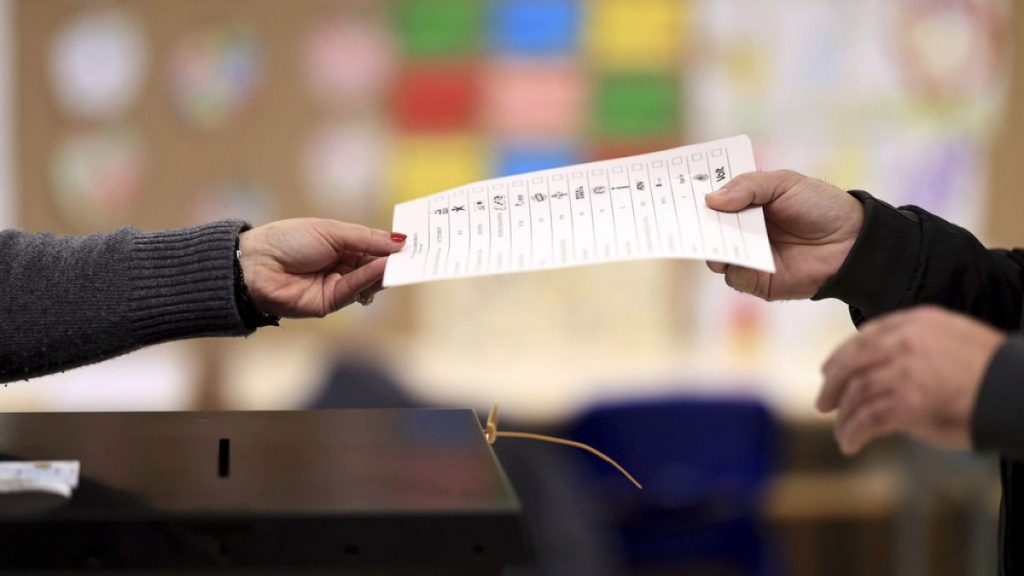In a significant development for the upcoming legislative elections in Portugal, over 333,000 registered voters will be able to participate in advance voting this Sunday. This marks the highest number of early voters since the implementation of mobile voting, according to the country’s Ministry of Internal Affairs. The early voting allows voters to cast their ballots at their preferred polling stations, facilitating wider participation ahead of the elections scheduled for May 18.
The advance voting initiative comes at a pivotal moment as political tensions rise following the dissolution of the coalition government led by Prime Minister Luís Montenegro. With 21 parties competing in these early elections, including the current ruling coalition, observers are keenly anticipating the outcome amidst shifting voter loyalties and a fragmented political landscape.
| Article Subheadings |
|---|
| 1) Overview of Advance Voting in Portugal |
| 2) Political Context Behind Early Elections |
| 3) Voter Turnout and Trends |
| 4) Polling Predictions and Potential Outcomes |
| 5) Implications for Future Governance |
Overview of Advance Voting in Portugal
This Sunday, Portugal will witness a record number of over 333,000 registered voters engaging in advance voting, a milestone attributed to the mobile voting system implemented over the past decade. This initiative is part of an effort to enhance voter accessibility, allowing people to cast their votes at the polling stations most convenient for them, provided they indicated their preferred locations upon registration. The Ministry of Internal Affairs highlights that this system aims to increase democratic participation and reduce the logistical challenges that often deter voters from participating in elections.
Political Context Behind Early Elections
The landscape of Portuguese politics has shifted dramatically, prompting these early elections. Following a failed motion of confidence against Prime Minister Luís Montenegro in March, the political climate became unstable. The motion’s rejection was tied to a controversy involving Montenegro and his family-owned company, Spinumviva, raising significant concerns over public officials’ adherence to conflict of interest regulations. In response, President Marcelo Rebelo de Sousa dissolved the coalition government, which included Montenegro‘s center-right party, thereby precipitating these elections.
Voter Turnout and Trends
In past elections, voter engagement has varied significantly. For context, in 2024, approximately 208,000 voters opted for advance voting, including notable figures such as President Marcelo Rebelo de Sousa himself. The current increase to over 333,000 indicates a notable surge in voter participation, reflecting heightened interest in the political process as Portugal navigates uncertain waters. With nearly 10 million eligible voters registered overall, both domestically and abroad, the significant increase suggests that Portuguese citizens are deeply invested in the outcomes of the upcoming elections, which are deemed crucial amidst political controversy.
Polling Predictions and Potential Outcomes
As the election campaign enters its final week, various polling organizations have conducted surveys to gauge voter intentions. According to a recent poll conducted by Consulmark2 for Nascer do SOL, the coalition led by Luís Montenegro currently leads with 34.1% of voting intentions. The opposition Socialist Party, guided by Pedro Nuno Santos, lays in second place with a predicted 27.1%, while the far-right populist party Chega maintains third position with 15.2%. Lesser-known parties, such as the Liberal Initiative, are projected to secure around 8.3%. These numbers provide insight into the current political dynamics and highlight the potential for a fragmented parliamentary landscape depending on the election results.
Implications for Future Governance
The upcoming elections and their implications are of paramount importance for Portugal’s future political governance. With the participation of 21 different parties, the potential for coalition-building or minority government scenarios is high. As various parties vie for control, the dynamics of governance will fundamentally depend on the ability to form alliances or negotiate compromises. Early polling indicates fragmented support, which could lead to prolonged negotiations post-election. The outcomes may significantly influence future policy directions, particularly concerning economic management, social policies, and responses to ongoing national issues.
| No. | Key Points |
|---|---|
| 1 | Over 333,000 voters in Portugal will participate in advance voting this Sunday. |
| 2 | The advance voting system aims to improve voter accessibility and participation. |
| 3 | Political instability following Luís Montenegro‘s failed motion of confidence led to these early elections. |
| 4 | Current polling indicates a competitive race, with Montenegro‘s coalition in the lead. |
| 5 | The outcome may lead to new coalition formations or a minority government. |
Summary
The strategic implementation of advance voting in Portugal comes at a critical juncture as the nation approaches its legislative elections. With the backdrop of recent political controversies affecting voter sentiment, the significant increase in advance voting showcases heightened civic involvement. As various parties prepare for a competitive electoral environment, the potential implications of this election could resonate in the governance and policy direction of the country for years to come.
Frequently Asked Questions
Question: Why is advance voting significant for the elections in Portugal?
Advance voting is significant as it increases voter accessibility and participation, enabling more citizens to exercise their democratic right without facing logistical challenges on the election day itself.
Question: What led to the early elections in Portugal?
The early elections were precipitated by the political turmoil following Prime Minister Luís Montenegro‘s failed motion of confidence and subsequent dissolution of the coalition government by President Marcelo Rebelo de Sousa.
Question: What does the current polling reflect about voter sentiments?
Current polling reflects a competitive race, highlighting a divided political landscape with multiple parties vying for influence, suggesting potential challenges in governance and coalition-building following the elections.


